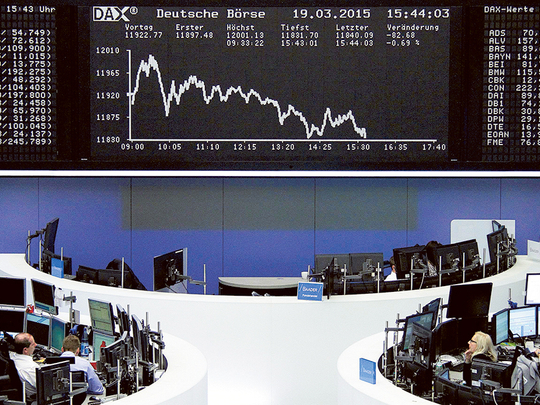
London: Commodity trading houses and energy companies are making a final attempt to win exemptions from European regulations that are set to subject them to the same capital requirements as banks.
In a report published on Monday, Trafigura, one of the world’s leading commodity traders, said there was “little justification” for proposals that would impose substantial requirements but not reduce risk in the financial system. Trafigura is one of the biggest names to enter the debate over the regulations, which threaten to force tougher demands on many of the region’s energy and commodities traders, regardless of size.
The pushback comes as European authorities conclude their final review in coming months of the Markets in Financial Instruments Directive (Mifid II), the region’s flagship markets legislation. Regulators want to increase transparency, foster competition, clamp down on speculation and guard against systemic risk across equity, fixed income and commodity markets.
Unless the rules are amended, commodity traders and energy companies stand to lose market exemptions and will be forced to comply with the same requirements as banks. Commodity traders and energy companies use commodity derivatives to hedge the raw materials and products they buy and sell.
“This would produce no material reduction in systemic risk, but would increase the costs of commodity trading to the detriment not just of trading firms, but of the producers and consumers,” said the author of the report, Craig Pirrong, a finance professor at the University of Houston and commodities industry academic.
“There are a lot of misunderstandings about the sector, and the financial regulator is looking at everything in bank-like terms. If you impose the capital requirements, it may force [smaller companies] to go public and raise capital when it may not be the best option,” he added. The report was paid for by Trafigura.
Commodity traders join banks and some exchanges in expressing worries that the cumulative effect of the rules - which go further than any other jurisdiction — will be to make Europe uncompetitive. “Trading commodities poses no threat to bank savers and no requirement to protect investors,” Fortum Oyj, a Finnish energy, company warned regulators this month. “Nor do commodity traders have access to central bank liquidity to meet liquidity requirements. Imposing the same obligations on fundamentally different businesses makes the field unplayable.”
Some have argued that the European Securities and Markets Authority (Esma), which is charged with writing the technical details of Mifid II, has not quantified the thresholds that would make an energy company systematically risky.
“We do not pose the same risk as banks,” said one executive at an energy company, who estimated an impact of at least $500 million [Dh1.84 billion] if capital rules were imposed on his group.
HEAG Sudhessische Energie, which supplies electricity, gas and water to the German state of Hessen, said there was a “substantial” risk that European regulators could end up “supervising a large number of small or medium-sized energy companies, just because they breach a figure, which was never tested according to the reality.”
However, the Association for Financial Markets in Europe, a trade group for banks, said the biggest trading houses should be treated the same as its members. “We believe that all entities engaged in similar or analogous activities should be regulated in a consistent manner,” it said in a recent report.
Financial Times












